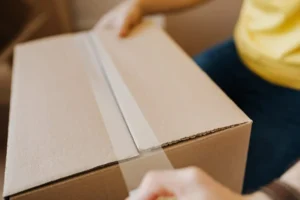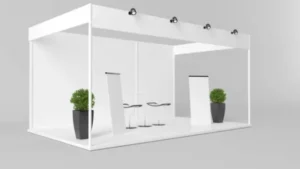When I first came across the word paraphernalia in a crime report, it was in the context of drug laws. Honestly, it felt overwhelming – the word seemed technical and serious, with strong legal associations. But the more I read studies, scanned quotes, and reflected on how language shapes our thoughts, the more I saw how this term links law, history, and everyday life. It’s more than just fancy vocabulary – paraphernalia means a collection of items tied to an activity, whether that’s tech gear, kitchen tools, or something controversial like drug paraphernalia. The relevance of this word today lies in its rich meaning, its definition, and how we use it – stretching across modern and ancient contexts.
What really fascinates me is how the language of paraphernalia shows up in pop culture, legal discussions, and personal stories. A word-lover I know once used it to describe their collection of sewing tools. If you trace the origins of this term, you’ll discover its roots in historical law, where it described a married woman’s personal belongings outside her husband’s estate. Today, it pops up in tech reviews, forensic tables, and heated cultural debates. Whether you’re a language buff or just an eager reader, this kind of guide gives you a real deep dive into why words like paraphernalia still matter. It’s packed with useful examples, solid facts, and helps define the word while expanding our understanding of structured contexts and daily conversation. And yes, it can still make some folks feel uneasy – especially depending on the report it’s used in.
Clear Definition of Paraphernalia: Beyond the Dictionary
Paraphernalia generally refers to objects, tools, or accessories used for a specific purpose, often personal. It can seem neutral, but sometimes carries a negative note, especially in legal or illicit contexts.
- Core Definition: Items used in a particular activity – “camping paraphernalia,” “kitchen paraphernalia.”
- Neutral vs. Negative:
- Neutral: “He packed his fishing paraphernalia for the weekend.”
- Negative: “Officers found drug paraphernalia at the scene.”
- Context-Based Meaning:
- Academic: Any specialized instruments for research?
- Casual: Everyday gear or stuff you use regularly.
- Common Misuse: Some people misuse “paraphernalia” to just mean random stuff – with no specific aim – leading to dilution of its meaning.
Origins of the Word Paraphernalia
Greek Roots and the Original Meaning
The word began as παραφερνᾰ́λιος (paraphernálios) in Greek. It combined:
- Para- = beside
- Phérnē = bride’s property
Originally, it described belongings a bride owned besides what her husband brought. It wasn’t about tools then – it was about personal possessions and inheritance.
Transition Through Medieval Latin
Medieval Latin adopted the term as paraphernalia, retaining the meaning but shifting from marriage law into ecclesiastical and legal texts. It began referring to any personal belongings outside of dowry, expanding in meaning gradually.
Evolution in English: From Property to Objects
By the 17th century, English speakers used paraphernalia to indicate personal property beyond dowry. As material culture grew, the term shifted from private belongings to “gear,” “equipment,” or “apparatus.” By the 19th century, it had lost its social class baggage and gained modern utility.
Real-World Use of Paraphernalia Today
Common, Everyday Examples
Here are some non-legal paraphernalia examples we use daily:
| Category | Examples |
| Kitchen | Cutting boards, spice racks, garlic press |
| Office | Stapler, pen sets, sticky notes |
| Travel | Neck pillow, packing cubes, passport holder |
| Tech | Chargers, earbuds, and camera accessories |
Think of paraphernalia as your go-to gear for specific activities.
Industry-Specific Uses
- Medical: Syringes, stethoscopes, surgical instruments
- Art & Crafts: Brushes, easels, carving sets
- Scientific Labs: Beakers, Bunsen burners, spectrometers
- Outdoor/Sports: Tents, GPS units, hiking sticks
Each field uses paraphernalia tailored to its purpose and environment.
Legal and Criminal Connotations
This is where paraphernalia takes a darker turn.
Legal definition often includes any item used or intended for drug-related activities – manufacturing, packaging, or consuming drugs.
Key distinctions:
- Possession without intent vs. with intent
- Having a pipe doesn’t always mean intent.
- Having residue or records of use often does.
- U.S. law: Controlled Substances Act defines “drug paraphernalia” with detailed criteria: look, nature, intent, etc.
- Global differences:
- The U.K. doesn’t automatically assume intent; a thorough investigation is needed.
- Australia and parts of Canada have similar provisions, but enforcement varies.
Notable Legal Cases
- Washington v. Drug Paraphernalia (2018): Entered tech and digital records to evaluate intent.
- People v. Smith (2014, CA): Ruled that the absence of drug residue could lead to dismissal.
Paraphernalia in Pop Culture, Literature, and Media
Writers love this word – it adds flair and context:
“He carried the paraphernalia of the digital age – smartphone, earbuds, and a battered laptop.”
- In novels, it evokes identity and character occupation.
- In films, it sets a tone: underwater exploration gear, detective kits, or spy gadgets.
- In music, it symbolizes subcultures: “roll-up paraphernalia” in reggae or hip‑hop.
Case Study – Breaking Bad: Chemical paraphernalia becomes a silent character – flasks, gas masks, scales morph into symbols of Walter White’s transformation from teacher to kingpin.
Similar Words and What Makes Paraphernalia Unique
Paraphernalia overlaps with but doesn’t equal these terms:
- Equipment: Broader; might include heavy machinery.
- Tools: Handheld items for work or building.
- Gear: The most informal and general.
- Apparatus: Often technical or scientific.
What sets paraphernalia apart: It implies a collection of smaller related items, usually personal or specialized, rather than single-function equipment.
Examples in Everyday Scenarios (with Context)
- Student’s kit:
- Backpack filled with pens, notebooks, a calculator, USB. That’s educational paraphernalia at work.
- Makeup artist:
- Mixing palette, brushes, and color wheel – all part of their paraphernalia.
- Police report:
- “Suspect had drug paraphernalia – needles, baggies, scales” – this signals illegal intent to authorities.
- Moving day:
- Labels, packing tape, bubble wrap – essential paraphernalia for smooth relocation.
Cultural and Psychological Perspectives on Paraphernalia
Paraphernalia can reflect identity:
- Collectors: Stamps, sports cards – each belonging says something about them.
- Fans: Concert merch, jerseys, meetup lanyards – they bond people.
- Rituals and routines: Coffee lovers line up mugs; yogis assemble mats, blocks, straps.
Psychologists note: Surrounding yourself with meaningful tools helps reinforce habits, boost confidence, and deepen engagement.
Conclusion:
Understanding the meaning of paraphernalia opens the door to richer communication, clearer legal awareness, and sharper cultural insight. This isn’t just a fancy word for “stuff.” It carries centuries of evolution, from ancient Greek brides’ property to modern legal interpretations involving drug enforcement, and everyday gear that shapes how we live, work, and play.
What sets paraphernalia apart is its unique ability to encapsulate a collection of tools or items connected by purpose. Whether you’re referencing a student’s backpack full of study materials, a detective’s toolkit in a crime novel, or law enforcement documentation on illegal items, the word lends precision and nuance.
In daily life, recognizing paraphernalia helps us become more intentional. Our personal belongings – our creative kits, tech setups, or work gear – can reflect our identity, habits, and values. In a legal context, understanding the term helps differentiate between innocent possession and suspicious intent. And in literature and media, it offers a rich lens for symbolism and storytelling.
So next time you encounter the word “paraphernalia,” don’t just skim past it. Look deeper. Ask yourself: What tools are shaping the moment, the message, or the meaning?
FAQs :
What does paraphernalia mean in simple terms?
Paraphernalia refers to a group of items or tools used for a specific activity or purpose. It can be neutral, like cooking paraphernalia, or legally charged, like drug paraphernalia.
Is paraphernalia always associated with illegal use?
No. While in legal settings it’s often tied to drug-related offenses, in general use, it simply means tools or gear. For example, sports paraphernalia refers to jerseys, gloves, or fan merchandise.
Can paraphernalia refer to digital tools or software?
Yes. In modern contexts, the term can include digital accessories – think smartphone paraphernalia like chargers, cases, styluses, or even gaming controllers.
How is paraphernalia different from equipment or tools?
While “equipment” or “tools” may refer to individual items or machinery, paraphernalia usually means a set of smaller, related items that serve a unified function. It also tends to carry a more personal or informal tone.
Is the term paraphernalia still relevant in today’s language?
Absolutely. It’s used in legal documents, pop culture, educational contexts, and everyday conversations. Understanding its nuances enhances clarity and helps avoid miscommunication, especially in legal or professional environments.











